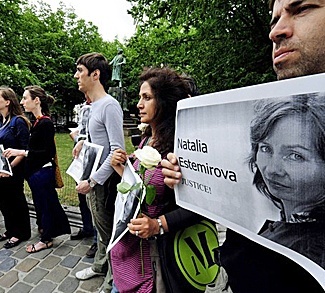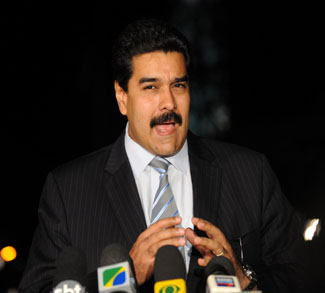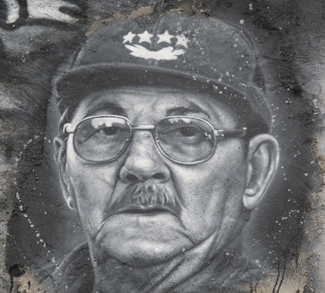Summary
The kidnapping and murder of Russian human rights activist Natalia Estemirova stands as further evidence that Putin-era hallmarks of strong central authority and a weakened rule of law will persist under President Medvedev.
Analysis
Journalists and human rights workers are finding it increasingly difficult to operate in Russia. If their work touches down on taboo subjects such as organized crime, government corruption, or the conflict in Chechnya, they risk incurring retribution that ranges from low level harassment to murder. According to the Committee to Protect Journalists (CPJ), 16 journalists have been killed in Russia since 1999, all of whom were engaged in reporting on one of these three subjects.
Some of the most notable cases of activist murders include: Anna Politkovskaya, shot to death in 2006 on the cusp of filling a report on torture and kidnappings in Chechnya, the very same abuses that Estemirova was investigating. Politkovskaya’s lawyer, Stanislav Markelov was killed in 2009 as he left a news conference aimed at focusing attention on the early release of a Russian officer convicted of killing an 18-year-old Chechen girl. Both cases remain unsolved.
There is evidence to suggest Russian government complicity in ongoing civil society assassinations.
As far as indirect involvement goes, the most damning evidence is the unsolved nature of almost all of the cases; of the 16 journalist murders since 1999, all but one case remains unsolved. Populist nationalism has created an environment where activists who are perceived to have links with Western-based groups are often regarded as subversive, and thus easily fall prey to threats and harassment.
There is also a possibility of more direct government involvement. The Federal Security Service (FSB), successor to the KGB, has operated extensively in Chechnya, and is speculated to be behind many of the disappearances and kidnappings that took place during the Second Chechen War – disappearances that both Estemirova and Politkovskaya were investigating. It is definitely within the agency’s interests to ensure that its operations remain clandestine.
Bad blood between the pro-Russian Chechen leadership and Natalia Estemirova suggests that officials in Grozny wouldn’t stand in the way of a FSB assassination. In 2008, Chechen President Ramzan Kadyrov summoned Estemirova to a meeting in which he directly threatened her, an incident that resulted in her temporarily leaving Chechnya out of fear for her safety. More recently, Estemirova was interrogated for hours at the Chechnya Interior Ministry.
Perhaps the most damning piece of evidence is the location of Estemirova’s body. Between her house in Grozny and the location where her body was found in neighboring Ignushetia lies a gauntlet of government checkpoints. The perpetrators apparently had no problem navigating them.
It is generally held that up until the global financial crisis, President Medvedev remained beholden to Prime Minister Putin and his siloviki power base, statist elements consisting of politicians drawn from the security services. However, there have been rumblings that Russia’s ruinous economic performance has dislodged some of Prime Minister Putin’s support, allowing a liberal-minded group of supporters to coalesce around President Medvedev.
The interplay between these two groups recently became apparent during WTO negotiations. Prime Minister Putin’s sudden announcement that Russia would seek to join the WTO as a customs union with Kazakhstan and Belarus was later contradicted by President Medvedev, who called Putin’s plan “problematic” and pledged that Russia still plans to seek independent membership.
It is thus possible that President Medvedev will develop enough of a liberal-minded power base to cut his reliance on Prime Minister Putin and the siloviki, but until that time and perhaps even beyond, it should be expected that the state-sponsored crackdown on Russian civil society will continue.




